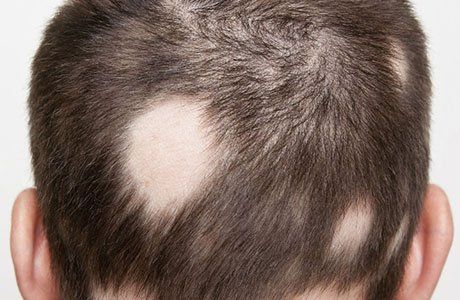Are you facing unexpected hair thinning or bald patches? Meds for Alopecia: The Best Treatments for Hair Loss in 2025 offers proven treatments to slow hair loss, stimulate regrowth, and manage autoimmune triggers.
These medications, prescribed by dermatologists, target the root causes of various alopecia types, helping restore hair and confidence.

Whether you need topical solutions or oral therapies, meds for alopecia provide effective, research-backed options tailored to your condition.
Learn how medical intervention can support lasting hair recovery with safe, expert-recommended care.
Meds for Alopecia: Best Treatments for Hair Loss in 2025
Alopecia refers to temporary or permanent hair loss. It can occur due to autoimmune conditions, hormonal imbalances, genetics, infections, or even medication side effects.
Understanding the underlying cause is essential to choosing the right course of treatment.
Common Medications for Alopecia
Several drugs are currently used to manage various forms of alopecia. Treatment varies depending on the type and severity of the hair loss.
1. Topical Minoxidil
- Indication: Androgenetic alopecia (male and female pattern hair loss)
- How it works: Stimulates hair follicles by increasing blood flow.
- Considerations: Requires continuous use; results typically appear within 3 to 6 months.
2. Oral Finasteride
- Indication: Male pattern baldness
- Mechanism: Inhibits the conversion of testosterone to DHT, a hormone linked to hair loss.
- Note: Not recommended for women of childbearing age due to teratogenic effects.
3. JAK Inhibitors (e.g., Baricitinib)
- Indication: Alopecia areata
- Mechanism: Blocks immune pathways involved in autoimmune hair loss.
- Status: FDA-approved and showing promising results in extensive clinical trials.
4. Corticosteroids
- Form: Topical creams, intralesional injections, or oral tablets
- Usage: Used to suppress inflammation in autoimmune alopecia
- Side Effects: Long-term use may have systemic implications, requiring professional oversight.
5. Immunotherapy Agents (e.g., Diphenylcyclopropenone – DPCP)
- Use: Applied topically to induce mild dermatitis, which redirects the immune response away from hair follicles.
- Availability: Administered under clinical supervision.

Who Is a Candidate for Medication?
Medications are typically suitable for patients experiencing early to moderate hair loss. Ideal candidates:
- Have been diagnosed with alopecia areata, androgenetic alopecia, or telogen effluvium
- Prefer non-surgical solutions
- Are medically fit for oral/topical therapies
At Dr. Rana Irfan’s clinic, each patient undergoes a thorough diagnostic evaluation, including scalp analysis and, when necessary, blood tests to rule out hormonal or autoimmune contributors.
What to Expect: Timeline and Outcomes
- Initial Results: Most treatments begin showing signs of improvement within 8 to 16 weeks.
- Maintenance: Consistency is crucial for long-term results.
- Combination Therapy: In many cases, combining medication with PRP or low-level laser therapy yields enhanced outcomes.

Why Choose Dr. Rana Irfan in Islamabad?
- Expertise: Certified by ABHRS and ISHRS with decades of experience
- Facilities: Modern, hygienic clinic located in Islamabad
- Personalized Care: Every treatment plan is tailored to the individual
- Comprehensive Services: From non-surgical treatments to advanced FUE hair transplant procedures
Patients from across Pakistan and abroad trust Dr. Irfan’s clinic for safe and scientifically guided care.
Local and International Relevance
Dr. Irfan’s clinic in Islamabad serves:
- Local patients: Especially those in Rawalpindi, Lahore, and Peshawar
- International patients: From the Gulf, the UK, and Canada seeking affordable yet high-quality hair loss treatments
Our multilingual staff and teleconsultation options make planning your hair restoration journey convenient.
Links Suggestions:
Frequently Asked Questions (FAQs)
What is the drug of choice for alopecia areata?
JAK inhibitors, such as Baricitinib, are gaining recognition as effective treatments for alopecia areata.
Are there tablets available to treat alopecia?
Yes, options include oral finasteride for androgenetic alopecia and corticosteroids or JAK inhibitors for alopecia areata.
Can alopecia be permanently cured with medication?
Most medications manage symptoms and promote regrowth, but do not offer a permanent cure. Long-term management may be required.
Are antibiotics effective for alopecia?
Antibiotics are not typically used unless a secondary scalp infection is present.
Is it safe to combine treatments?
Yes, under medical supervision, medications can be safely combined with PRP or laser therapy to improve outcomes.
